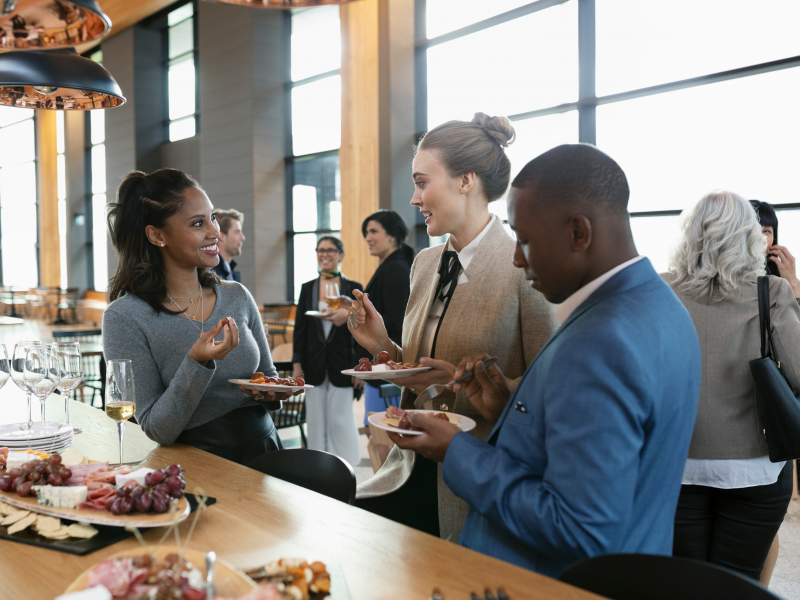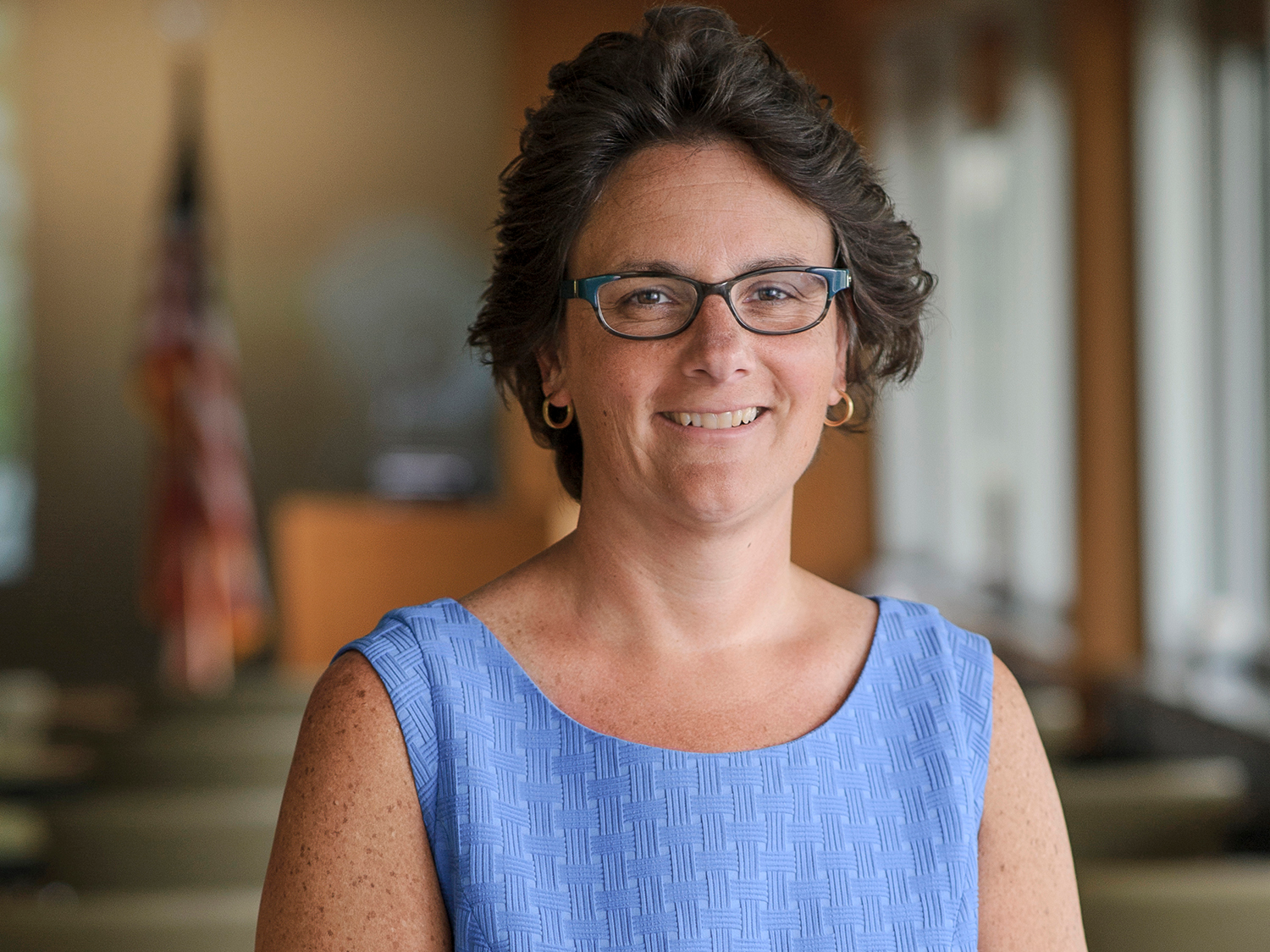- Lynda Bennett is the chair of Lowenstein Sandler’s insurance recovery group; she is also the founder and leader of the firm’s Women’s Initiative Network.
- Five years, she helped launch the woman’s initiative at her firm – and is proud of how it’s grown and evolved.
- To launch a successful women’s initiative, she says you need a passionate leader, people who are eager to join the community, a clear vision, direct input, and cornestones to measure success.
- Visit Business Insider’s homepage for more stories.
About five years ago, several associates within my firm approached me separately to ask why our firm did not have an active women’s initiative. They expressed concern that junior women did not really know – or have access to – the female partners. They had noticed that there were built-in informal forums for our male colleagues to gather and get to know one another (e.g., firm softball team, basketball team, golf outings). While the firm did have programs geared toward women, they were externally focused on networking and business development.
The need identified by my junior colleagues was a more basic one: Women who work together share common interests, professional goals, challenges, and sometimes anxieties. They were looking for a place where they could talk about their day to day and find out if their experiences were unique, or if more senior women within the firm had any tips or best practices. At the most basic level, the women were looking for a constructive way to get out of their practice area silos from time to time to learn more about what was going on elsewhere in the firm and have an opportunity for professional camaraderie.
We started with a simple vision, which was to empower and support our women to achieve professional and personal success, but this vision is not the only thing that would get this newfound women’s initiative off the ground. We came up with the five main elements that make up the “secret sauce” of a successful women’s initiative.
First, a leader who is passionate about paving the way for women to embrace their confidence and secure the tools needed to achieve career goals.

She must know how to empower women by sharing her own personal experiences but also understanding that war story monologues can be counterproductive. To move the needle, the leader must create forums for conversation and facilitate active participation from all members.
In collaboration with women in the firm who included junior, mid-level and senior associates as well as a few partners, I took it upon myself to create a very different women's initiative than the ones that I had participated in within my own firm in the past.
Second, a collection of associates who are eager for early leadership opportunities and understand the importance of community.

These women are likely to be among your organization's highest achievers and they are going to make the time, over and above their billable hour responsibilities, to participate in a labor of love that will enrich their career development.
In taking steps to determine what we wanted the initiative to look like, we made the conscious and intentional decision to be internally focused. We acknowledged that business development and building core competencies are crucially important to a woman's professional life, but those issues would have a secondary focus for our group.
One focus of the group would be recognition, plain and simple. I developed and implemented "shout out" emails that are blasted to all women's initiative members about once per quarter. These emails highlight the accomplishments of our women when they close a deal, win an oral argument, take their first deposition, land a new client, receive an external recognition, add value to the firm through work on another committee or initiative, and the like. No win is too big or too small for inclusion in the email. And, again, the emails showcase women from all practice areas, all offices, and all levels of seniority. Of course, the recipients of the shout out are always appreciative and grateful for the public recognition that they have received because women are notoriously challenged in the realm of self-advocacy.
However, an even bigger benefit in sending these emails is the impact that it has on the other women in the firm who receive and read them. They routinely tell me that it makes them proud to work with, and among, such accomplished women. They also tell me that it makes them want to do more and be better so they too can get some shout out love. But, my greatest joy has come from the women who are learning the lesson of the shout out email when they reach out to tell me something good about themselves, i.e., they have stepped up to the megaphone to proudly share their accomplishment - oftentimes a first and important step toward empowerment and confidence for them.
Third, a clear vision and consistent implementation of that vision through programming and events.

Many women's initiatives struggle and fizzle out because they strive to do too much and the perfect becomes the enemy of the good. Be intentional in the selection of your topics and your panelists. Be realistic in terms of how much time busy attorneys will be willing and able to commit to your programming. Be inclusive for all personality types and be cognizant of the varying personal lives/commitments of your members.
Our mission statement is: "To create an environment that fosters personal connections, trust, camaraderie, and networking opportunities. We will celebrate and embrace our differences. We will encourage creativity, generosity, and passion in all of our professional and personal endeavors." Keeping this mission top of mind helped us stay focused with the programs and events as we work to benefit the members of the initiative.
To create this environment, we purposefully started with social gatherings (e.g., a standing "no agenda" monthly lunch and cocktail events). Our first formal programs were panel discussions that were comprised of only our women talking only to our women. We shared five things we wished we had known earlier in our careers and how to develop, maintain, and cultivate a network. We were intentional about populating the panels with women from different practice areas across our different office locations. The panelists had varying levels of seniority. The moderators of the panels were among our most junior women attorneys. This was done intentionally to allow our junior women to have an early leadership opportunity and to communicate to the broader message to our audience that junior women can, and should, feel free to speak to more senior women in the firm.
Fourth, direct and regular input into your programming from members.

Short surveys are an important tool and so is being responsive to membership suggested discussion topics, because that creates buy-in and a sense of ownership among all members of the initiative.
We knew that as we got started with programming, we could not host formal panel presentations geared toward having our women share their most acute confidence issues, practical workplace tensions, or managing "work-life balance." Instead, we circulated an email to all women attorneys announcing the creation of the initiative and provided a survey to gauge interests and needs. The response was extremely positive and we got to work developing a realistic calendar of events.
Once a positive buzz started to build around our women's initiative, we added regular programs that has a decidedly more provocative bent. We started talking about issues that exist in every large law firm but are taboo - for example, how to respond to an unexpected or unwelcome remark that is made by a colleague, an adversary, a client, or a judge. We also addressed gender differences associated with the attorney review process, and provided tips for how women can better discuss their own successes and challenges.
Finally, the cornerstones for sustained success are making sure that your initiative is based on trust and delivers value to members who are "giving up" billable hours to participate.

While it took some time for us to develop those characteristics, the reason our initiative is robust and our events are routinely well attended is because we are able to engage in real talk about the issues that are most important to our members and their career development. We cannot, and do not, promise to solve problems or eliminate challenges. Instead, we strive to provide actionable advice and supportive listening that allows members to know they are not alone and they can achieve their career goals.
When these topics were teed up, very clear ground rules were established at the beginning of the program: an honest conversation was going to take place and to facilitate that conversation confidentiality must reign supreme. We also made clear the conversation was taking place in a "no judgment zone" because these topics never conclude with a right or wrong answer. Women partners often started these discussions by sharing personal stories - both of successes and failures in addressing issues in the moment.
Once the partners shared, some of the associates and counsel in the room shared too. More importantly, many other junior lawyers in the room did not share anything. They listened. Sometimes they followed up after the program was over. Each of them was able to find women who had similar questions, concerns and approaches to life because, as we developed programs like this, we were intentional about putting a mix of introverts and extroverts on our panels. We wanted to make sure that our attendees would be able to find someone they could relate to and feel comfortable speaking with.
All the while, we have remembered our roots - i.e., women who know, and like each other, at work will have greater connection to their workplace and will perform at higher levels as a result. We have stayed true to those roots by having an annual dinner that includes women across all of our offices where each dinner group is no larger than eight. The dinner assignments are made to ensure that attendees are in different practice areas, come from different offices, and have varying levels of seniority. We empower our junior women at those dinners to be table captains and lead discussion of both personal and professional topics.
In addition, we host one "light and breezy" event each year where our women can engage their creative side and have a casual evening of fun, e.g., a crafting event. Finally, to create a culture of inclusion among our women, we have devised an "Ambassador Program" where mid to senior level associates are assigned to welcome new women who have joined the firm. Our ambassadors are tasked with writing a welcome note and delivering a specially branded women's initiative gift. The ambassadors then make sure that the new hire is aware of upcoming women's initiatives events and offer to bring her to those programs and facilitate introductions to other group members.
February 2020 marks the five year anniversary of our women's initiative and I cannot be more proud of what we have built and sustained. I have made many new friends and, even as I enter my 26th year of practice, I continue to learn from my colleagues new ways to enjoy practicing as a woman in Big Law. I am confident that we are all better because we have each other and our women's initiative.
As demonstrated above, leadership, collaboration, inclusivity, and mutual respect are the key ingredients to the secret sauce. Women's initiatives that combine these ingredients can be successful regardless of their size. And, it is equally important to remember that success is not in numbers, not the number of programs you offer, or the number of members you have. Success is offering a few events each year that have great impact by teaching women about themselves and others, and equips them with one or two tools to enhance who they are. Success is when women learn and grow from one another, genuinely and organically, and with each other, and the organization's greatest role in that success is offering them the space and support to do so.

